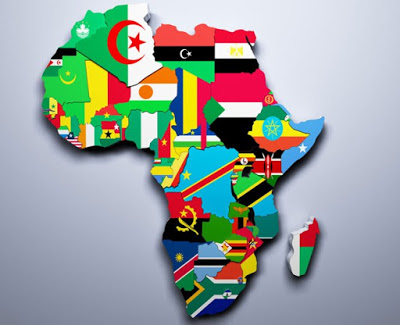Five of the six
Portuguese-speaking African countries are on the list of 44 states that
have subscribed to the African Continental Free Trade Area (AfCFTA)
project, which received a generally positive reception from civil
society.
Portuguese-speaking African countries are on the list of 44 states that
have subscribed to the African Continental Free Trade Area (AfCFTA)
project, which received a generally positive reception from civil
society.
The first step towards the creation of the AfCFTA was taken at the
end of March in Kigali, Rwanda, at the summit of heads of state of the
African Union (AU), with the signing of an agreement that provides for
the creation of a customs union similar to that of the European Union
(EU).
end of March in Kigali, Rwanda, at the summit of heads of state of the
African Union (AU), with the signing of an agreement that provides for
the creation of a customs union similar to that of the European Union
(EU).
At the head of the signatories is Angola, who was represented at the
summit by its president, João Lourenço, as well as Mozambique, also
represented by the head of state, Filipe Nyusi.
summit by its president, João Lourenço, as well as Mozambique, also
represented by the head of state, Filipe Nyusi.
According to Angolan economist José Carlos Costa, Angola, under
Lourenço’s leadership, “embraced this project with enthusiasm,” in
contrast with the position hitherto opposed to greater economic
integration in the region.
Lourenço’s leadership, “embraced this project with enthusiasm,” in
contrast with the position hitherto opposed to greater economic
integration in the region.
“I would like Angola to embrace regional integration tomorrow and to
face a hemispheric integration in the medium term without any
reservations, and I, therefore, hope that the enthusiasm shown with the
signing of the agreement in Kigali will have as its first consequence a
change of position on regional economic integration,” Costa wrote on his
website “Angonomics.”
face a hemispheric integration in the medium term without any
reservations, and I, therefore, hope that the enthusiasm shown with the
signing of the agreement in Kigali will have as its first consequence a
change of position on regional economic integration,” Costa wrote on his
website “Angonomics.”
From the AfCFTA project “there will certainly be more positive than
negative things, such as the cheaper import of products from other
countries in the region and the expansion of markets for our already
exporting companies and the emergence of opportunities for those that do
not yet export,” he added.
negative things, such as the cheaper import of products from other
countries in the region and the expansion of markets for our already
exporting companies and the emergence of opportunities for those that do
not yet export,” he added.
Following the signing of the Kigali agreement, the Minister of
Foreign Affairs and Cooperation of Mozambique, José Pacheco, stressed
the importance of Africa “to unite to do inter-African business.”
Foreign Affairs and Cooperation of Mozambique, José Pacheco, stressed
the importance of Africa “to unite to do inter-African business.”
Rwanda’s Foreign Minister Louise Mushikiwabo said the agreement “has
important economic implications for the African population, “as it will
open the market to 1.2 billion people with the possibility of generating
great wealth for the continent, accelerating investment, diversifying
the economy and increasing trade.”
important economic implications for the African population, “as it will
open the market to 1.2 billion people with the possibility of generating
great wealth for the continent, accelerating investment, diversifying
the economy and increasing trade.”
Signatories of the agreement include Equatorial Guinea, through its
prime minister, Francisco Obama Asue, São Tomé and Príncipe and Cabo
Verde (Cape Verde), represented at ministerial level.
prime minister, Francisco Obama Asue, São Tomé and Príncipe and Cabo
Verde (Cape Verde), represented at ministerial level.
Guinea-Bissau was thus the only Portuguese-speaking country that did not sign the Kigali agreement.
Moroccan think-tank OCP Policy Center, in a recent analysis of the
signing of the agreement, stressed that the “translation of vision into
action,” will not be easy, not least because of the need to include
large economies such as South Africa and Nigeria, which are still
studying their membership, but also to limit the exclusion of products
and to define rules of origin for them.
signing of the agreement, stressed that the “translation of vision into
action,” will not be easy, not least because of the need to include
large economies such as South Africa and Nigeria, which are still
studying their membership, but also to limit the exclusion of products
and to define rules of origin for them.
“All African nations are also faced with the need to improve
transport infrastructure to enable trade to take place. The larger and
richer economies, notably China, the European Union and the United
States, have an interest in the success of the free trade zone and there
is much they can do to promote a favourable outcome,” said the OCP
Policy Center. (macauhub)
transport infrastructure to enable trade to take place. The larger and
richer economies, notably China, the European Union and the United
States, have an interest in the success of the free trade zone and there
is much they can do to promote a favourable outcome,” said the OCP
Policy Center. (macauhub)





